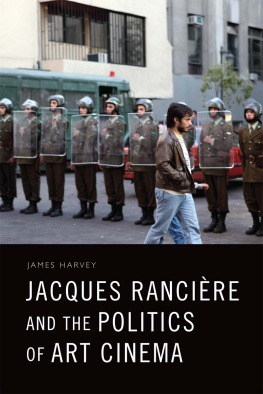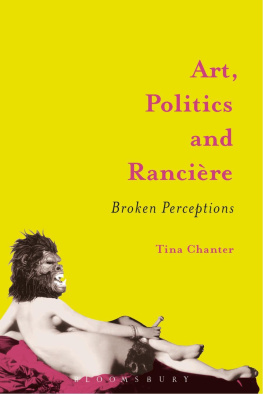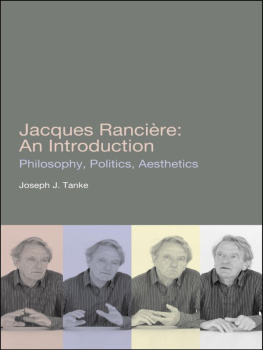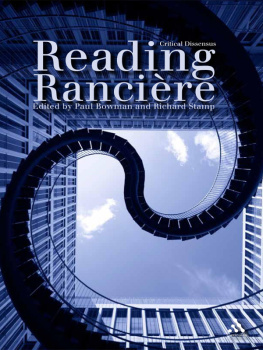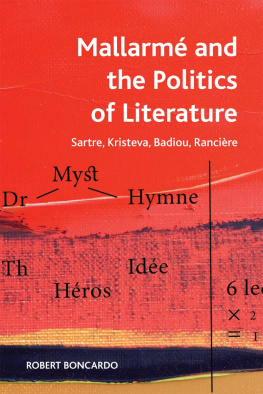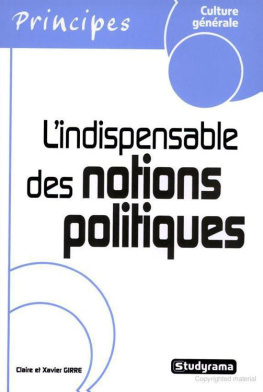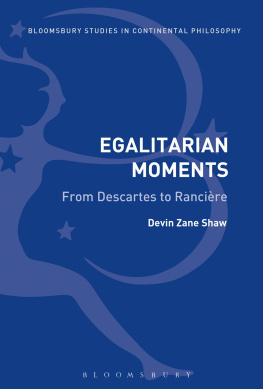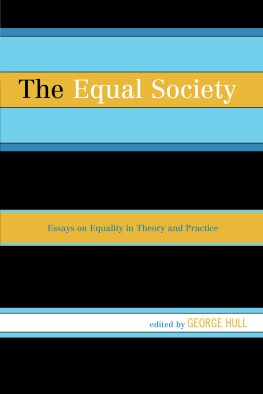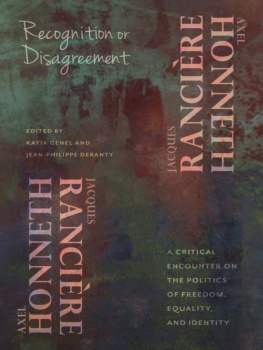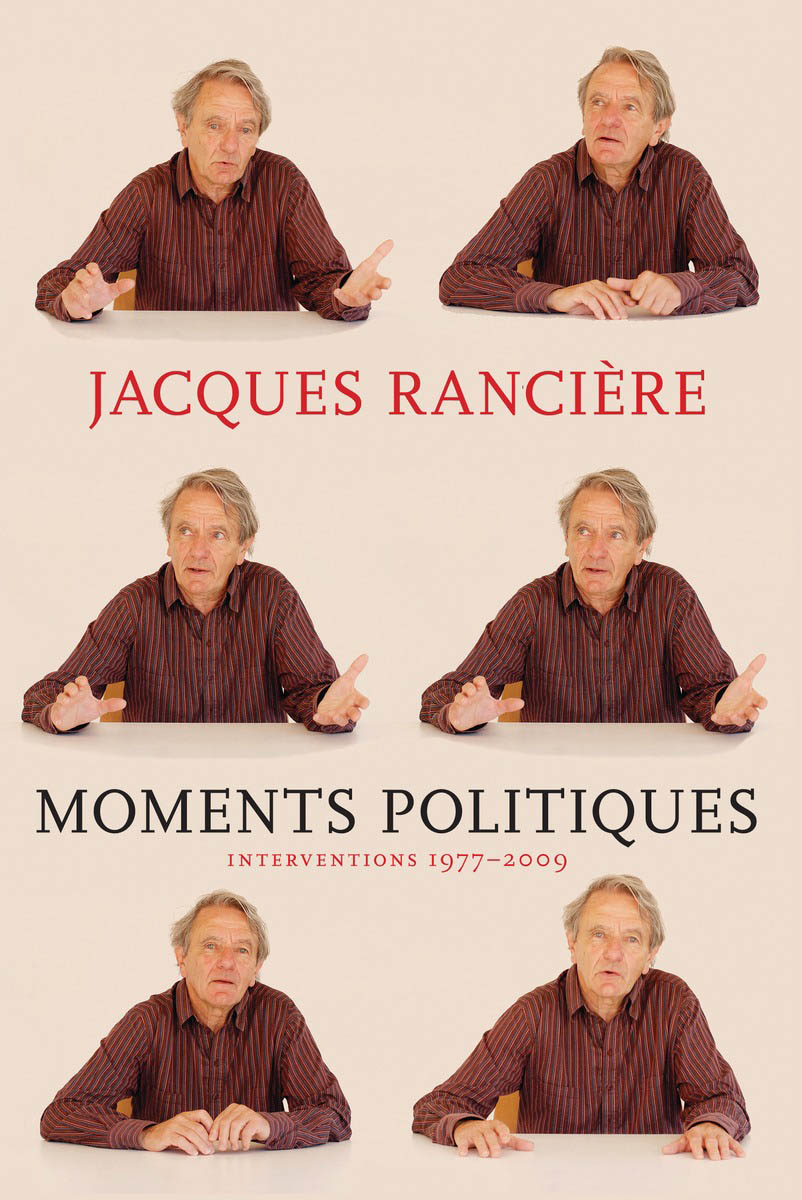MOMENTS POLITIQUES
MOMENTS POLITIQUES
Interventions 19772009
Jacques Rancire
Translated by Mary Foster
Seven Stories Press
New York Oakland
Original title: Moments politiques: Interventions 19772009
Lux diteur, Montral, 2009
www.luxediteur.com
English Translation 2014 by Mary Foster
The articles in this book were selected and annotated by Martin Jalbert and Claude Rioux, and edited by Thomas Dri.
All rights reserved. No part of this book may be reproduced, stored in a retrieval system, or transmitted in any form or by any means, including mechanical, electronic, photocopying, recording, or otherwise, without the prior written permission of the publisher.
Seven Stories Press
140 Watts Street
New York, NY 10013
www.sevenstories.com
College professors and high school and middle school teachers may
order free examination copies of Seven Stories Press titles. To order, visit www.sevenstories.com/textbook or send a fax on school letterhead to
(212) 226-1411.
Library of Congress Cataloging-in-Publication Data
Rancire , Jacques.
[Moments politiques. English]
Moments politiques / Jacques Rancire ; translated by Mary Foster. -- A Seven Stories Press First Edition.
pages cm
ISBN 978-1-60980-533-3 (paperback)
1. Political science--Philosophy. 2. World politics--1945-1989. 3. World politics--1989- I. Title.
JA71.R26413 2014
320--dc23
2014010322
Book design by Jon Gilbert
Printed in the USA
9 8 7 6 5 4 3 2 1
Contents
Preface
The articles in this collection were selected by the editor. They span more than thirty years, but there is something that unites them: each responds to the demands of its time. Sometimes these demands arise from a conflict that forces us to take sidesfor example, on French immigration laws or the American invasion of Iraq. Sometimes events of lesser or greater impactfrom a killer heat wave to an innocuous sociological investigationallow insight into the mechanisms of power and the systems of interpretation that govern us. It may be that an anniversary invites retrospection: forty years since May 68, or twenty years since the death of Michel Foucault.
Each of these situations provides the opportunity for a double exercise, first to identify the particulars of a political moment, then to sketch out a map of the present that moment defines. Talking about a political moment is not intended to evoke the idea that the political exists only in rare moments of insurrection violently detached from the normal course of things. In fact, the events that motivated these articles often had more to do with demonstrations of oligarchic power than with radical expressions of egalitarian power.
To speak of a political moment is, first of all, to assert that the political cannot be identified with the uninterrupted course of government actions and struggles for power. The political truly exists when the management of its goals leads to the question of what exactly it isin and of itselfand directly to questions about the type of community it concerns, and who is included in this community and on what basis. The political comes into play when it involves the imagination of the community. For example, in France, in the fall of 1995, interest in balanced retirement funds spread beyond accounting circles and set the stage for new questions to emerge. What kind of community calculates everyones future? Who is in a position to discuss this community and why? At that moment, people who asserted a practice of solidarity in the streets were set apart from those who allowed their representatives to choose the best calculations. Reasoning from a shared intelligence was set against the schoolmaster. The political also comes into play when a government decides the threshold of acceptance for those who come to work and live in a foreign country, or defines the qualities newcomers must offer to meet the values of the national community.
Ways of dealing with common concerns are in fact ways of configuring and reconfiguring a community, of defining its nature, and of sketching the outline of those it includes and excludes. This work of the imagination never ceases to efface itself by presenting its findings as simple surveys of data and identifiable problems that the passage of time and the development of the world have rendered obvious. This is consensus. A political moment occurs when the temporality of consensus is disrupted. It occurs when a force is capable of exposing the imagination of the relevant community and of contrasting it with a different configuration of the relationship of each individual to everyone else.
The political doesnt need barricades to exist. But it does require that there be two distinct and perceptibly opposed ways to describe the common situation and to count the players involved. This is also why it exists as moments, not as fugitive bursts. A moment is not simply a unit of time. It is another weight thrown on the scale that sizes up situations and the individuals capable of seizing them. A moment unleashes or strangles a movement. It is never a simple advantage taken by one force opposing another, but a tear in the common fabric, a new possibility that makes itself visible and that challenges the obviousness of a given world.
This means two apparently contradictory things. The first is that the political exists only through the action of collective subjects who concretely change situations by asserting their creativity and reconstructing the worldfor example, transportation workers who march to assert they are capable of reshaping a city; or African hunger-strikers who show they are locals just as authentically as those born with lighter skin, and that they contribute to the community through their work, and to the political community through their words and struggles. Some draw the conclusion that only activists with organizational affiliations can talk about politics. But a confusion of two elements underlies the figure of the activist: the forms of action through which the terms of the possible are changed, and the interdependence of belonging to a collective. If collective political action overthrows a monopoly on legitimate discourse, the purpose certainly isnt immediately to constitute a more beneficial monopoly in its place. On the contrary, the goal is to open a space for inquiry where anyone can speak, on the condition that ones speech and ones capacity to make resonant the power of an action may be interrogated. The space where this resonance takes place is usually called opinion, which since Plato has been passed off as the opposite of thought. But opinion is actually the space in which the possibilities of thought and the mode of community these possibilities define are determined. Opinion is not a homogenous space for the lowest form of thought, but rather a space in which to debate what can be thought under particular circumstances and what the consequences of this thought might be. The political also consists of efforts to enlarge the space of dissensus by struggling against a machinery of interpretation that endlessly either erases the singularity of circumstances or reabsorbs it into categories of domination, transforming those who have protested into representatives of backward populations, egotistical entities, or restricted minorities. The political only exists through action by collective subjects. The consistency of the alternative worlds they construct depends on the endless battle over how these worlds are interpreted by the state, media, art, and science.
From this perspective, the period spanned by these articlesfrom summer 1977 to spring 2009is particularly significant. The significance of these years is a political matter. Dominant opinion has characterized this period, in the simplest way, as an after : postmodernity and the end of utopiasthe end, in short, of all that is susceptible to ending. These articles were written with the simple belief that proclamations of millennial or apocalyptic change need not be read as a mere sign of laziness. These accounts are stakeholders in an intellectual logic of domination that should be recognized for what it is.


